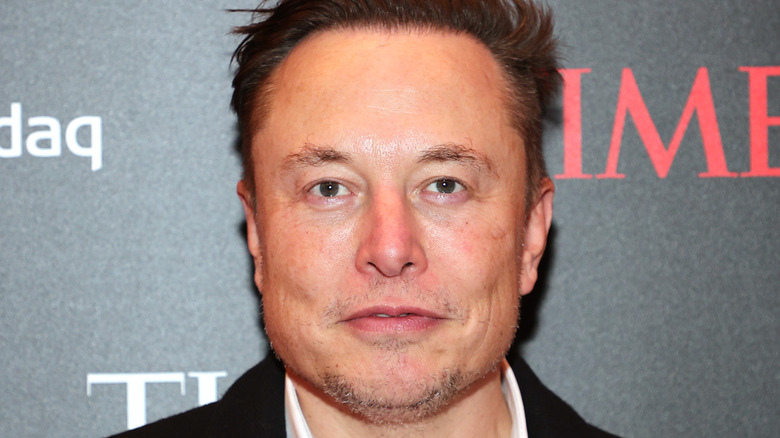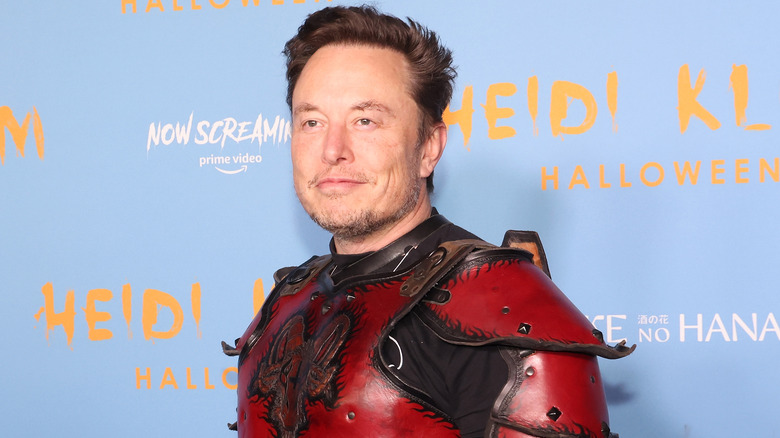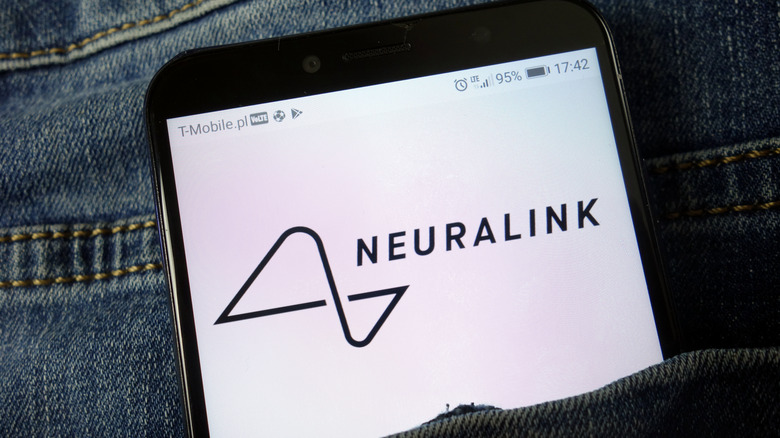Elon Musk Makes Drastic Promise About Neuralink When It's Available
Multi Billionaire Elon Musk has big plans for the future. Beyond colonizing mars, The New York Times writes that Musk intends for the human brain to have the ability to connect and control a computer via his Neuralink implant. USA Today reports that Musk and eight others founded Neuralink back in 2016. At a 2019 event, Musk noted that this technology would "cure important diseases” (per Science). Furthermore, Reuters states that Musk hopes that Neuralink will restore vision to blind individuals and motor function to those who suffer from paralysis. Musk, per ABC News, has likened his invention to a "Fitbit in your skull."
So how exactly does it work? According to Insider, Neuralink is a small chip that includes several thin wires that connect to the brain. The wires have 1,024 electrodes that Forbes explains will send data to a computer. The chip is the size of a coin and Musk claims (via The Guardian) that it "charges wirelessly, so you look and feel totally normal." Per Neuralink's website, the chip would be implanted into the brain by surgery aided by a robotic arm. Although this sounds straight out of a science fiction film, Musk tweeted that he intends this procedure to one day be as simple as LASIK eye surgery.
Elon Musk says he will get a Neuralink implant
In late November 2022, CNN reported that Elon Musk had an event to promote and recruit employees for Neuralink. According to Reuters, Musk used this occasion to reiterate the promises he has made about Neuralink including its abilities, and its development. He explained, "The progress at first, particularly as it applies to humans, will seem perhaps agonizingly slow, but we are doing all of the things to bring it to scale in parallel." Musk added, "So, in theory, progress should be exponential." Furthermore, Insider writes that Musk made a surprising declaration; he too will get the Neurolink implant once it's ready.
He stated (via CNBC), "You could have a Neuralink device implanted right now and you wouldn't even know. I mean, hypothetically ... In fact, in one of these demos, I will." Musk later affirmed this statement on Twitter.
Musk also spoke about the possibility of "full body functionality" for Neuralink users with spinal cord injuries, amongst other things. Despite these claims and previous video footage of monkeys with a Neuralink implant playing video games using only their minds (per the BBC), experts are not totally convinced by Musk's technology. Daniel Yoshor, a neurosurgeon and neuroscientist from the University of Pennsylvania told The New York Times, "The hardware is impressive but does not represent a dramatic advance in restoring or enhancing brain function."
Human trials for Neuralink could begin in 2023
Per Insider, Neuralink has yet to be tested on humans. However, the company has recently come under fire for its alleged maltreatment of monkey test subjects. This resulted in a complaint from the Physicians Committee for Responsible Medicine. They noted that the monkeys had undergone "extreme suffering" from the Neuralink implant including seizures and infections. In fact, CNN reported that one of these monkeys died. Neuralink later denied these claims on its website. At Neuralink's recent event, Musk brought up concerns regarding this topic. He stated (via another article from CNN), "We do everything we possibly can with rigorous benchtop testing so we're not cavalier about putting devices into animals."
According to The New York Times, Musk claims that human trials for Neuralink could start in six months. He also admitted that the device has yet to be approved by the Food and Drug Administration (FDA). Musk noted (via CNBC), "Obviously, we want to be extremely careful and certain that it will work well before putting a device in a human."
Reuters reports that Musk's current Neuralink timeframe is murky as he has missed most of his deadlines. He previously claimed that human trials were going to begin in 2021. Needless to say, Neuralink has brought up a slew of ethical questions. Anna Wexler from the University of Pennsylvania stated, "Space or Twitter, that's one thing, but when you come into the medical context, the stakes are higher."


